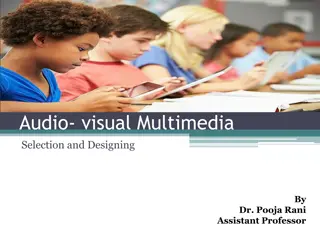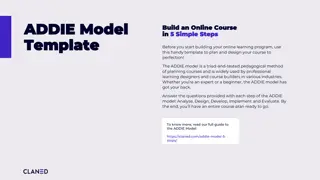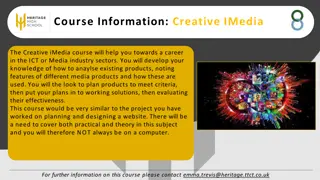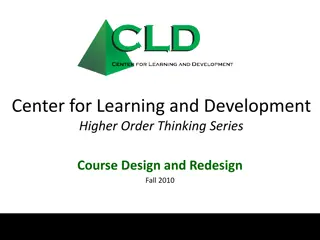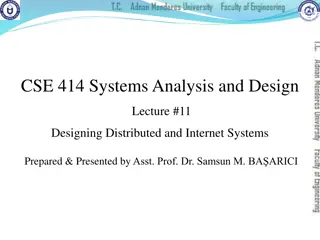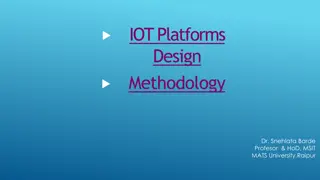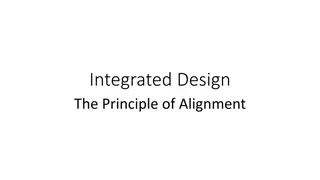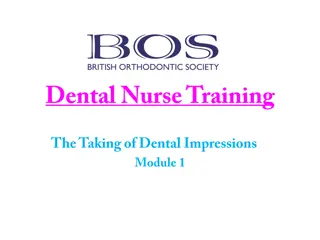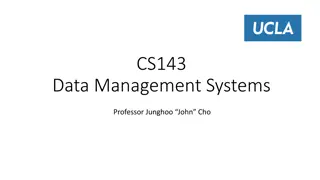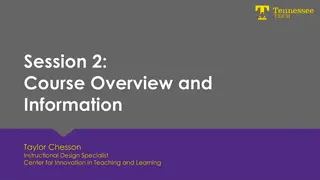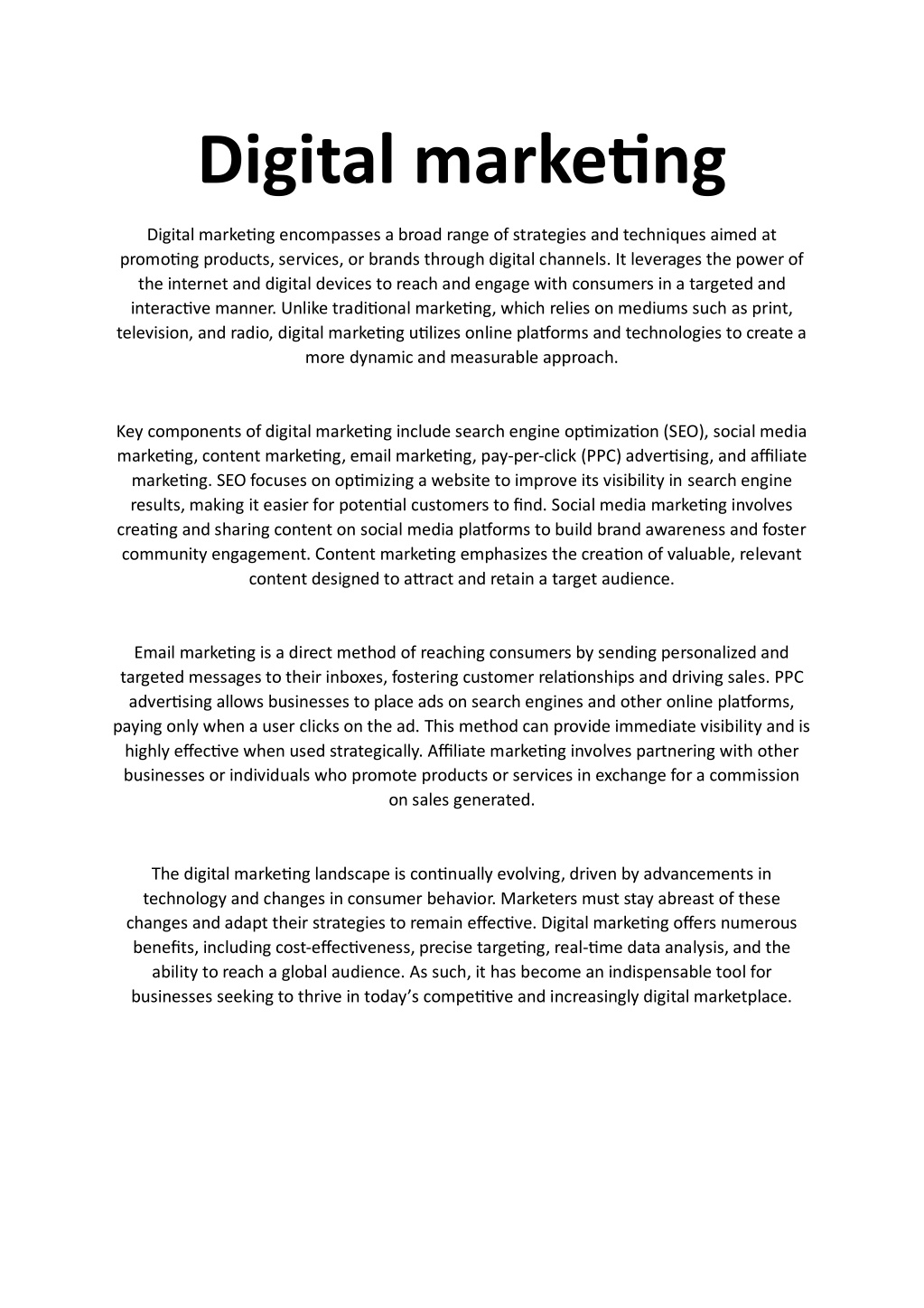
graphic designing course in Chandigarh
Digital marketing refers to the use of digital channels, platforms, and technologies to promote products, services, and brands to consumers. It encompasses a broad range of activities, including search engine optimization (SEO), content marketing, so
Download Presentation

Please find below an Image/Link to download the presentation.
The content on the website is provided AS IS for your information and personal use only. It may not be sold, licensed, or shared on other websites without obtaining consent from the author. Download presentation by click this link. If you encounter any issues during the download, it is possible that the publisher has removed the file from their server.
E N D
Presentation Transcript
Digital marketing Digital marketing encompasses a broad range of strategies and techniques aimed at promoting products, services, or brands through digital channels. It leverages the power of the internet and digital devices to reach and engage with consumers in a targeted and interactive manner. Unlike traditional marketing, which relies on mediums such as print, television, and radio, digital marketing utilizes online platforms and technologies to create a more dynamic and measurable approach. Key components of digital marketing include search engine optimization (SEO), social media marketing, content marketing, email marketing, pay-per-click (PPC) advertising, and affiliate marketing. SEO focuses on optimizing a website to improve its visibility in search engine results, making it easier for potential customers to find. Social media marketing involves creating and sharing content on social media platforms to build brand awareness and foster community engagement. Content marketing emphasizes the creation of valuable, relevant content designed to attract and retain a target audience. Email marketing is a direct method of reaching consumers by sending personalized and targeted messages to their inboxes, fostering customer relationships and driving sales. PPC advertising allows businesses to place ads on search engines and other online platforms, paying only when a user clicks on the ad. This method can provide immediate visibility and is highly effective when used strategically. Affiliate marketing involves partnering with other businesses or individuals who promote products or services in exchange for a commission on sales generated. The digital marketing landscape is continually evolving, driven by advancements in technology and changes in consumer behavior. Marketers must stay abreast of these changes and adapt their strategies to remain effective. Digital marketing offers numerous benefits, including cost-effectiveness, precise targeting, real-time data analysis, and the ability to reach a global audience. As such, it has become an indispensable tool for businesses seeking to thrive in today s competitive and increasingly digital marketplace.
Introduction Digital marketing refers to the use of digital channels, platforms, and technologies to promote products, services, or brands to consumers. It encompasses a wide array of strategies and tactics aimed at reaching a target audience through various online mediums. Unlike traditional marketing methods, digital marketing leverages the power of the internet and electronic devices to engage with customers in a more direct and interactive manner. At its core, digital marketing involves activities such as search engine optimization (SEO), social media marketing, content marketing, email marketing, pay-per-click (PPC) advertising, and affiliate marketing. These components work together to create a cohesive strategy that drives traffic, generates leads, and ultimately, boosts sales and brand awareness. SEO is the practice of optimizing a website to rank higher in search engine results pages (SERPs), making it more visible to potential customers. Social media marketing utilizes platforms like Facebook, Instagram, Twitter, and LinkedIn to engage with audiences, share content, and build brand loyalty. Content marketing focuses on creating valuable and relevant content to attract and retain a clearly defined audience, while email marketing involves sending targeted messages to prospects and customers to nurture relationships and drive conversions. PPC advertising allows businesses to place ads on search engines and other platforms, paying only when a user clicks on the ad. This method provides immediate visibility and can be highly effective when used strategically. Affiliate marketing involves partnering with other businesses or individuals to promote products or services, often through a commission- based system. The digital marketing landscape is constantly evolving, with new trends and technologies emerging regularly. Marketers must stay updated with the latest developments and adapt their strategies accordingly to remain competitive. Overall, digital marketing offers a cost- effective, measurable, and versatile approach to reaching and engaging with today s tech- savvy consumers, making it an essential component of any modern business strategy. https://excellenceacademy.co.in/digital-marketing-course-in-chandigarh/
Types to reach and engage target audiences through online channels. Each type of digital marketing serves a unique purpose and requires specific tactics to be effective. Here are some of the main types: Digital marketing encompasses a variety of strategies designed 1. Search Engine Optimization (SEO): SEO involves optimizing a website to improve its visibility on search engine results pages (SERPs). This includes on-page techniques like keyword optimization, meta tags, and content quality, as well as off-page strategies such as backlink building. The goal is to attract organic (non-paid) traffic by ranking higher for relevant search terms. 2. Marketing: This type focuses on creating and distributing valuable, relevant, and consistent content to attract and retain a target audience. Formats include blog posts, articles, videos, infographics, and eBooks. The aim is to provide useful information that solves problems or meets needs, thereby building trust and authority in the industry. 3. Social Media Marketing: Utilizing platforms like Facebook, Instagram, Twitter, LinkedIn, and TikTok, social media marketing involves creating and sharing content to build brand awareness, engage with followers, and drive traffic to websites. It also includes paid advertising on these platforms to reach a broader audience. 4. Pay-Per-Click (PPC) Advertising: PPC involves placing ads on search engines, social media platforms, and other websites. Advertisers pay a fee each time their ad is clicked. Google Ads and Facebook Ads are popular PPC platforms. This method provides immediate visibility and is particularly effective for time-sensitive campaigns. 5. Email Marketing: This direct marketing strategy involves sending targeted emails to prospects and customers. Email marketing can include newsletters, promotional campaigns, product announcements, and personalized offers. It s a powerful tool for nurturing leads, building relationships, and driving conversions.
6. Affiliate Marketing: In affiliate marketing, businesses partner with individuals or other companies to promote their products. Affiliates earn a commission for each sale or lead generated through their promotional efforts. This type leverages the influence and reach of affiliates to expand market presence. 7. Influencer Marketing: This involves collaborating with influencers individuals with a large following on social media or other platforms to promote products or services. Influencers can sway their audience s purchasing decisions, making this a highly effective form of digital marketing. 8. Video Marketing: Utilizing platforms like YouTube, Vimeo, and social media, video marketing involves creating engaging video content to promote products, explain services, or share brand stories. Video is a highly engaging format that can significantly boost conversion rates. Each type of digital marketing offers unique benefits and can be used in combination to create a comprehensive digital marketing strategy. By leveraging these various types, businesses can effectively reach their target audiences, build brand awareness, and drive growth in the digital age.
Benefit indispensable tool for businesses seeking to thrive in today's competitive landscape. These advantages span across cost efficiency, precise targeting, real-time data analysis, global reach, and enhanced engagement, making digital marketing a powerful strategy for driving growth and success. Digital marketing offers a multitude of benefits that make it an Cost Efficiency: Digital marketing is often more cost-effective than traditional marketing methods. Many digital marketing strategies, such as SEO, content marketing, and social media engagement, require minimal financial investment but can yield significant returns. Even paid advertising options like PPC can be more affordable and provide a higher return on investment (ROI) compared to traditional media. Precise Targeting: One of the standout benefits of digital marketing is the ability to target specific demographics, behaviours, and preferences. Advanced analytics and data tools enable marketers to segment their audience and tailor messages to resonate with different groups. This precision ensures that marketing efforts reach the most relevant and interested consumers, increasing the likelihood of conversions. Real-Time Data and Analytics: Digital marketing provides access to real-time data and analytics, allowing businesses to track the performance of their campaigns instantly. This immediate feedback loop enables marketers to adjust strategies on the fly, optimize content, and allocate resources more effectively. The ability to measure metrics such as website traffic, conversion rates, and engagement levels provides invaluable insights into what works and what doesn't. Global Reach: The internet has no geographical boundaries, enabling businesses to reach a global audience. Digital marketing allows companies to expand their market presence beyond local or regional constraints, tapping into new customer bases around the world. This global reach is particularly beneficial for e-commerce businesses and those looking to scale their operations internationally. Enhanced Engagement: Digital marketing facilitates two-way communication between businesses and their customers. Through social media platforms, email marketing, and interactive content, businesses can engage with their audience in real-time, fostering
stronger relationships and building brand loyalty. Personalized interactions and prompt responses to customer inquiries enhance the overall customer experience. Flexibility and Adaptability: Digital marketing campaigns can be quickly adapted to respond to market trends, consumer behavior changes, and emerging technologies. This flexibility allows businesses to stay relevant and competitive, ensuring their marketing strategies are always aligned with current market dynamics. In summary, digital marketing provides a cost-effective, highly targeted, and measurable approach to reaching and engaging with consumers. Its ability to deliver real-time insights, facilitate global reach, and enhance customer engagement makes it an essential component of modern business strategies, driving growth and ensuring long-term success. Advantags Digital marketing offers a myriad of advantages that position it as a crucial component of modern business strategies. These advantages range from cost-efficiency and precise targeting to enhanced engagement and adaptability, making digital marketing an essential tool for reaching today s consumers effectively. Cost-Efficiency: One of the primary benefits of digital marketing is its cost-effectiveness. Compared to traditional marketing methods like TV or print advertising, digital marketing channels such as social media, email, and search engine optimization (SEO) can deliver impressive results at a fraction of the cost. This allows businesses of all sizes to compete on a more level playing field, maximizing their marketing budgets. Precise Targeting: Digital marketing enables precise audience targeting. Advanced tools and analytics allow businesses to segment their audience based on demographics, interests, behavior, and more. This targeted approach ensures that marketing efforts are directed toward individuals who are most likely to be interested in the product or service, thereby increasing conversion rates and ROI. Measurable Results: Unlike traditional marketing, digital marketing provides real-time data and analytics. Marketers can track the performance of campaigns as they happen, measuring key metrics such as click-through rates, conversion rates, and customer
engagement. This data-driven approach allows for continuous optimization, ensuring that marketing strategies are as effective as possible. Global Reach: The internet connects people across the globe, allowing businesses to reach international audiences effortlessly. Digital marketing campaigns can be scaled globally, breaking down geographical barriers and opening up new markets for businesses without the need for a physical presence. Enhanced Engagement: Digital marketing fosters direct interaction between businesses and consumers. Through social media platforms, blogs, and email campaigns, businesses can engage with their audience, answer questions, and build relationships. This two-way communication helps in creating a loyal customer base and improving customer satisfaction. Flexibility and Adaptability: Digital marketing strategies are highly flexible and can be quickly adjusted to respond to changing market conditions and consumer behavior. Whether it s a shift in social media trends, updates to search engine algorithms, or new consumer preferences, digital marketing allows businesses to stay agile and adapt their strategies accordingly. Brand Building: Digital marketing offers numerous ways to build and enhance brand awareness. Consistent online presence through content marketing, social media engagement, and search engine visibility helps in establishing a strong brand identity. Visual elements, storytelling, and interactive content further contribute to building a memorable brand. Higher Conversion Rates: With precise targeting and personalized messaging, digital marketing often results in higher conversion rates. Techniques like remarketing, personalized email campaigns, and targeted ads ensure that businesses reach consumers who have shown interest, thereby increasing the likelihood of converting leads into customers. In summary, digital marketing provides significant advantages that enable businesses to market more effectively and efficiently. Its cost-efficiency, precise targeting, real-time analytics, global reach, enhanced engagement, flexibility, and ability to build strong brands and achieve higher conversion rates make it an indispensable tool in the modern marketing arsenal.
Scope Digital marketing encompasses a broad scope that spans various strategies, platforms, and technologies, all aimed at promoting products, services, or brands to a wide and diverse audience. This multifaceted approach leverages the power of the internet and digital devices, providing businesses with a versatile toolkit to reach, engage, and convert customers in a highly competitive digital landscape. Wide Range of Channels: The scope of digital marketing includes numerous channels such as search engines, social media, email, websites, and mobile apps. Each channel offers unique opportunities for businesses to connect with their audience. For example, SEO and PPC are essential for visibility on search engines, while social media platforms like Facebook, Instagram, and LinkedIn are vital for community engagement and brand building. Diverse Marketing Strategies: Digital marketing strategies are varied and can be customized to fit different business goals. These strategies include content marketing, which focuses on creating valuable content to attract and retain customers; email marketing, which uses targeted emails to nurture leads and drive sales; and social media marketing, which builds brand presence and fosters customer interaction on social platforms. Other strategies include influencer marketing, affiliate marketing, and online public relations. Advanced Technologies and Tools: The digital marketing landscape is continually evolving with the advent of new technologies and tools. Marketers now have access to advanced analytics, artificial intelligence, and automation tools that can optimize campaigns, personalize customer experiences, and provide deep insights into consumer behavior. Technologies like chatbots, voice search, and augmented reality are also expanding the possibilities of digital marketing. Global Reach and Localization: Digital marketing allows businesses to reach a global audience while also enabling localized targeting. Through geo-targeting and localization strategies, businesses can tailor their marketing efforts to specific regions, cultures, and languages, ensuring more relevant and effective communication with diverse audience segments. Real-Time Interaction and Engagement: One of the key aspects of digital marketing is the ability to interact with customers in real-time. Social media platforms, live chat, and
instant messaging enable immediate communication, allowing businesses to respond to customer inquiries, feedback, and complaints promptly. This real-time engagement helps in building stronger relationships and enhancing customer satisfaction. Measurable and Data-Driven: Digital marketing's scope includes the ability to measure and analyse performance accurately. Tools like Google Analytics, social media analytics, and email marketing software provide detailed data on campaign performance, audience behavior, and ROI. This data-driven approach allows marketers to make informed decisions, continually refine their strategies, and achieve better results. In summary, the scope of digital marketing is vast and dynamic, encompassing a wide range of channels, strategies, technologies, and tools. Its ability to reach a global audience, provide real-time interaction, and deliver measurable results makes it an indispensable part of modern business strategies, helping companies stay competitive and connected in the digital age. Salary package The salary package for digital marketing professionals can vary widely based on factors such as experience, education, location, industry, and specific roles within the field. Digital marketing is a broad domain, encompassing various specialties such as SEO, content marketing, social media management, email marketing, PPC advertising, and more. Each of these roles commands different salary levels, reflecting their unique skills and responsibilities. Entry-Level Positions For entry-level digital marketing roles, such as digital marketing assistants or junior marketers, salaries typically range from $40,000 to $60,000 per year. These positions often require a basic understanding of digital marketing principles and some hands-on experience with tools and platforms. Recent graduates with relevant internships or certifications may find opportunities in this salary bracket. Mid-Level Positions: As professionals gain experience and specialize in specific areas, such as SEO specialists, content marketers, or social media managers, salaries increase. Mid- level positions generally offer salaries ranging from $60,000 to $90,000 per year. These roles require a deeper understanding of digital marketing strategies, the ability to execute and manage campaigns, and proficiency with analytics and reporting tools.
Senior-Level Positions: Senior digital marketing roles, such as digital marketing managers, PPC managers, and digital strategists, command higher salaries, typically between $90,000 and $120,000 per year. Professionals in these positions are expected to have several years of experience, advanced skills in their specialty, and the ability to lead teams and drive significant business results. Executive and Director Roles: At the top of the hierarchy, digital marketing executives, directors, and chief marketing officers (CMOs) can earn salaries ranging from $120,000 to $200,000 or more per year. These roles involve strategic planning, overseeing entire marketing departments, and aligning digital marketing efforts with overall business goals. Extensive experience, proven success in previous roles, and strong leadership skills are essential for these high-level positions. Freelancers and Consultants: Freelancers and consultants in digital marketing also see a wide range of income potential. Their earnings depend on their expertise, reputation, and client base. Experienced freelancers can earn substantial income, often charging hourly rates ranging from $50 to $200 or more, depending on their specialization and market demand. In summary, digital marketing offers a diverse range of salary packages, reflecting the various roles and levels of expertise within the field. With the growing importance of digital marketing in the business landscape, professionals in this domain can expect competitive salaries and opportunities for advancement. https://excellenceacademy.co.in/digital-marketing-course-in-chandigarh/





